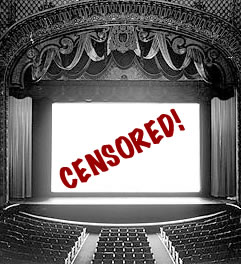 The film industry and Chinese government have maintained a confusing relationship in the public eye for a considerable time. Whether that is the result of Hollywood’s vocal attempts to stop the “ubiquitous and very cheap” nature of pirated DVD’s in mainland China, or China’s confusing and occasionally contradictory policies for filmmakers, is rather hard to say. However, some recent actions by Chinese officials have led many to believe China is trying its hands at a new export: censorship. According to the BBC, before the start of this year’s Melbourne film festival, the local Chinese consulate called the executive director of the festival in an attempt to convince the director to pull the film “The 10 Conditions of Love” about exiled Uyghur activist Rebiya Kadeer. When the festival decided to go ahead with the film, they were “subjected to an intense campaign of threats, intimidation and disruption” and “hackers managed to … mak[e] it appear that session tickets had been sold out.”
The film industry and Chinese government have maintained a confusing relationship in the public eye for a considerable time. Whether that is the result of Hollywood’s vocal attempts to stop the “ubiquitous and very cheap” nature of pirated DVD’s in mainland China, or China’s confusing and occasionally contradictory policies for filmmakers, is rather hard to say. However, some recent actions by Chinese officials have led many to believe China is trying its hands at a new export: censorship. According to the BBC, before the start of this year’s Melbourne film festival, the local Chinese consulate called the executive director of the festival in an attempt to convince the director to pull the film “The 10 Conditions of Love” about exiled Uyghur activist Rebiya Kadeer. When the festival decided to go ahead with the film, they were “subjected to an intense campaign of threats, intimidation and disruption” and “hackers managed to … mak[e] it appear that session tickets had been sold out.”
Unfortunately, China’s attempts to censor international events is becoming an increasingly common occurrence. When “The 10 Conditions of Love” was screened four times at the Kaohsiung Film Festival in Taiwan, China threatened a tourism boycott. And when the Frankfurt Book Fair, billed the “worldwide marketplace for ideas”, invited Chinese writers Dai Qing and Bei Ling to present at the fair, China demanded the writers be banned.
According to Dai Qing, "China is using its economic influence to threaten its trade partners in order to censor what they don't like.”
Interestingly, the artists most reviled by the Chinese government, win awarded worldwide acclaim outside of China. Recently, filmmaker Lou Ye (Purple Butterfly , Summer Palace) ignored a five-year ban he had received for not getting government approval to put his film “Summer Palace” in competition at the Cannes Film Festival (the second such ban he had received from the Chinese government), and took his newest work, “Spring Fever”, right back to Cannes. It went on to win the award for Best Screenplay at this year’s festival.
Unfortunately, it is not just widely-publicized directors coming under fire from the Chinese government. In March 2008, the Chinese government arrested self-taught documentarian, Dhondup Wongchang from Tibet after footage from his documentary detailing the Tibetan sentiment to Chinese rule was smuggled out of the country. After over a year in detention, the filmmaker smuggled a note out last month, saying that his trial had finally begun. According to his temporary lawyer, Wangchen had been tortured and he contracted hepatitis B while in custody.
So the next time you sit down for a movie, take the time to consider watching something China has banned recently. You’ll certainly have lots of interesting options.